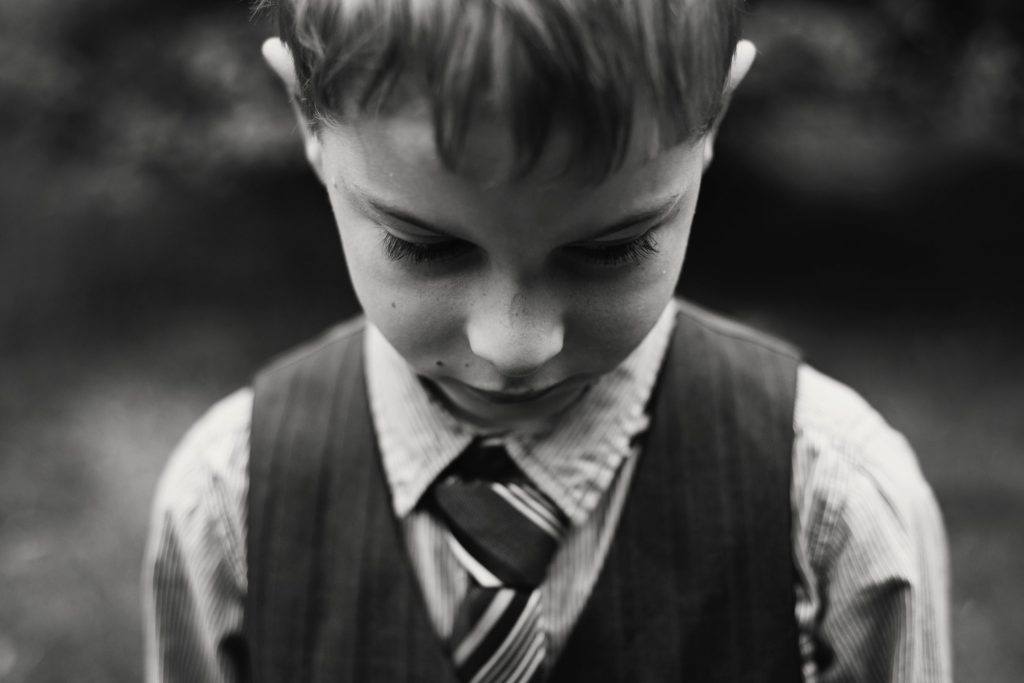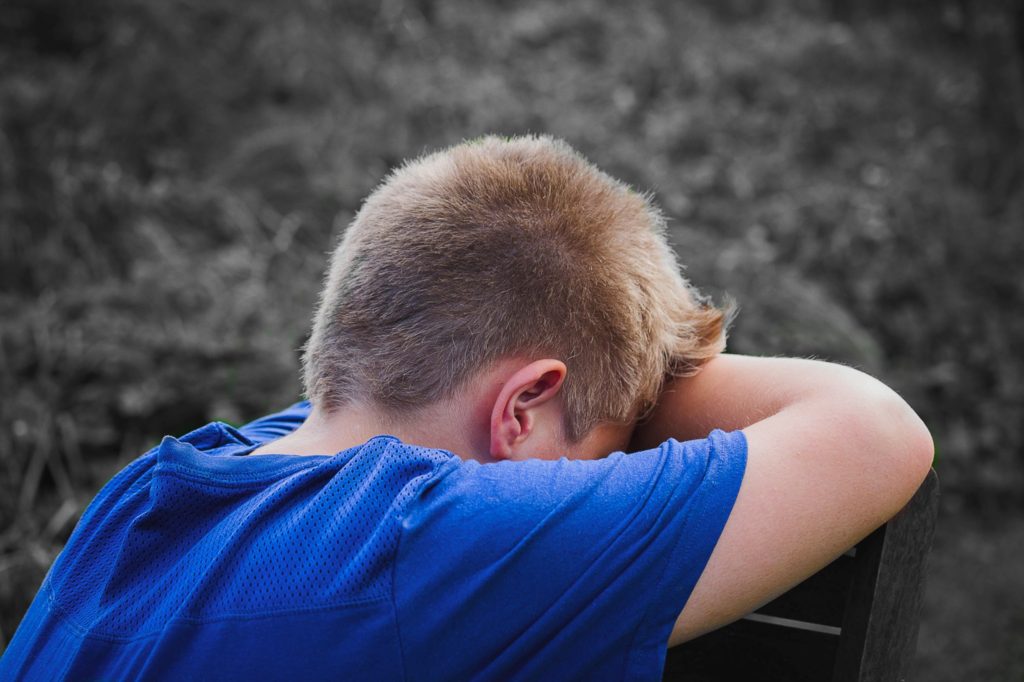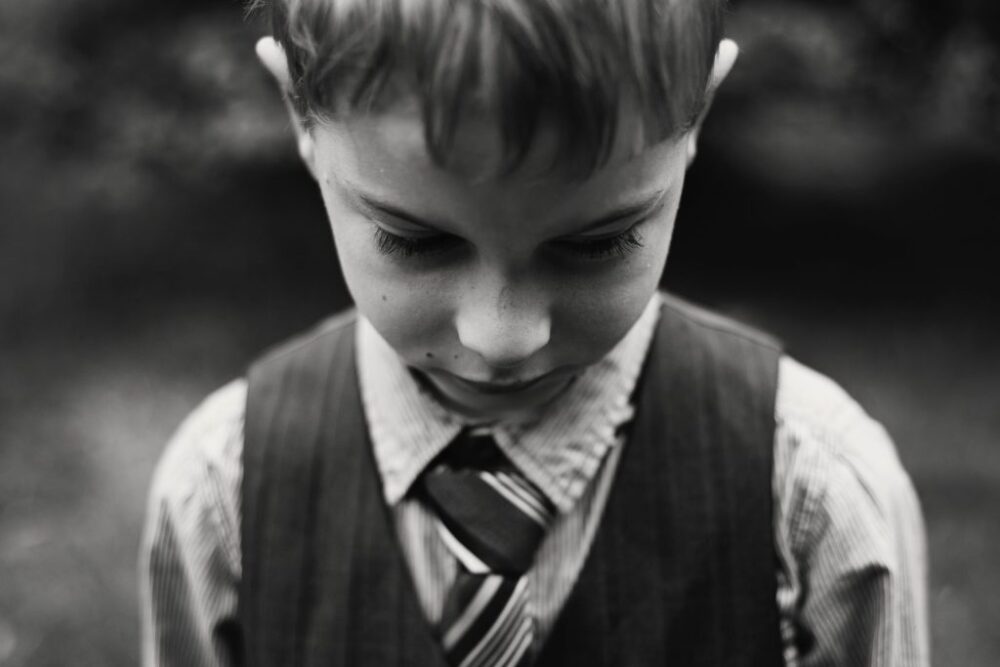
My thirteen-year-old and I sat across a sticky table from each other at the local donut shop. If I remember right, he had this maple-frosted thing that was the size of a small planet, totally at my permission (unusual for my Sugar Nazi tendencies). His tears had dried by now, leaving a whisper of salt on his cheeks.
“I just feel like I have more setbacks than wins,” he shrugged, so clearly in pain.
He wasn’t entirely wrong.
That was the day that, out of the four saxophonists who auditioned for advanced band, three made it in.
And it stunk to be #4.
Add to that the fact that he was my kid with a couple of learning disorders. He’s come so far, people. But that means that out of four kids, three of my kids find school relatively easy. One doesn’t. (Sensing a pattern here?)
And junior highers aren’t particularly merciful when your ADHD lapses into the territory of Wow. You’re amazingly annoying.
All that to say, my son was becoming good friends with striking out. Watching him across the table from me, I glimpsed that sense of powerlessness.
I personally have a lot of experience with failure. My heart wanted to scoop him up like when he was little, cuddle him up, and let him laugh out loud at Clifford the Big Red Dog. (But maybe that would contribute to a teenager’s sense of failure. Y’know.)
How can we help kids deal?

1. Hear their pain.
My every inclination is to help my kids zoom past their uncomfortable, less fun emotions: Anger. Fear. Sadness. (You should know that Christians are particularly adept at pretending these don’t exist.)
But we want our kids to “feel and deal”…not slap a bandaid on it. That is to say, not just escape, or spiritualize away, or minimize, or ignore.
After a death, Jews “sit shiva” for seven days. They sit around and are sad for the proper season. Obviously a failure doesn’t warrant a week of moping. But be okay, for just a little, appropriate while, to just be with your kids in their emotion.
2. Separate their ability to perform from who they are.
This is a priceless time to tell our kids the truth about where their value lies. It’s where we reiterate that we accept them 100%, no matter whether they’re smart, pretty, talented, athletic, mannerly, good, well-liked–or absolutely none of those.
Get this. If we gloss over our kids’ failure, rather than just sitting in it with them, we’re still sending the message, “You’re still smart/pretty/etc./etc. And that’s why I love you.”
Translation: As long as you are those things, you’ve got a friend in me. And I’m willing to look the other way as long as you are primarily those things.
That, friends, is not the message we’re going for.
(Though it may be hard. Our kids’ failure can so often feel like…our own. Can we separate our kids failure from who we are?)
And honestly, it’s not how God loves us. He recognized our failure, and reached out to make a way to still gather us into his arms. Our kids are dying to hear from us what they aren’t hearing hardly anywhere else: I accept you. Not because you’re generally great, but because you’re mine.
My love, and your value in the eyes of God (the only eyes who truly matter!) are unconditional.
So if they’re not completely true, nix phrases like these:
It’s not that bad. You’ll still make it.
Eh, no big deal. It’s just band.
They’re just jealous. You’re better than all of them anyway.
3. Help them gain perspective on this failure.
That said, failing an advanced band audition does not mean one’s primary life path is closed.
I asked my son if he remembered the water slide we screamed down last summer.
Where had the engineer designed all the water to go? (The pool at the bottom.) Did it all end up there? (Of course.) We talked about the verse from Proverbs: The king’s heart is a stream of water in the hand of the Lord; he turns it wherever he will (21:1). If there had been a hole in the waterslide, the water would have drained out to the wrong place. God shuts doors–boarding the slide up, so to speak–so the water of our life goes to all the right places.
So we dreamed a little bit. What could my son be good at instead? What other possibilities might be open because this door closed?

4. Get grateful.
My son needed a little help from a more developed frontal lobe, i.e. mine. When I was a kid, I remember allowing one bad event to tank my entire day. I think of it now as the snowball effect: Everything just gathers mass and speed, rolling downhill. Forget all that God was working that I could be thankful for. It was all curtains from here, right?
So my son and I talked about what was going right; things he hadn’t failed in. We talked about great things that, by the grace of God, my son has going for him. He’s got great health, a family who’s crazy about him, a warm home, a love for cooking great food, and killer compassion.
5. Get honest.
This can get tricky. Obviously, we don’t want to go with a shrug and, “Well, if you would have practiced more…”
But part of the gift of failure (yes, I called it that) is our human ability to change. I asked, “Is there something you wish you would have done differently?” Or you could say, “Is there something you wish you could go back and change?”
Yet even then, I want to be careful that I don’t raise kids who are victims; who can always find the reason in someone else for their failures.
It’s that classic adage of moms around the world: You can’t change their action; you can only change your reaction.
Kids who expect that the world should rightfully hand them perfection are in for a rude awakening. I will not be a snowplow parent, removing all obstacles. Because I want to raise a resilient child, a problem-solver who takes responsibility for his own capacity to change.
5. Help them dream about Plan B.
I asked my son questions about what he hoped to do in life with his instrument, so we could devise plan B. What was his end game? What did he like about band? (Should he try another elective better suited for what he’s good at? Shoud he try out for Jazz Band instead?)
What practical steps would it take to get to plan B?
He decided to talk with his teacher about what went wrong, and about what he’d need to do if he wanted to do band in high school.
What You Might Not Want to Do: A Beginning List
Don’t just distract them.
Yes, sometimes they’ll need help to snap out of it (…a donut? Did I suggest that? Maybe they just a good joke. I heard this week, “If you had the choice between being thin or eating tacos every day, would you choose hard tacos or soft tacos?” I digress). But communicate that being angry, sad, or afraid are okay. And you’ll sit with them through it.
That said, don’t just let them wallow.
They’ll need healthy ways to take captive their thoughts (2 Corinthians 10:5)! You’re establishing patterns on how to deal with painful days in the future: The unfair boss, the project that blows up in their faces, the kids who won’t listen.
Don’t focus on what everyone else did wrong.
“I wish that teacher had seen your talent” makes the problem about someone else–and surrenders our kids’ capacity to change. Grow. Learn.
Don’t get sucked into the drama.
I liked a metaphor I read from an article years ago: Picture your child getting a shot at the doctor’s office. You could look distressed with them (“I know! It hurts! It hurts!”), or you could hold them quietly, whispering calmly in their ear. One helps them back away from the proverbial ledge more than the other. Here are 8 Strategies for Tackling Kid Drama (without Squashing Kids’ Emotions).
Don’t accomplish Plan B for them.
Restore their sense of “I can” by showing them they have the ability to dig themselves out of whatever hole they fall in. I agreed to email my son’s band teacher (without a guilt trip) so we could devise strategies over spring break, but my son had a list of action points all his own. (You might like this post about “hope” being plan B.)
The Rest of the Story
So yet again (you’ll remember this kid’s story of almost quitting football last autumn–and somehow ending up as Most Improved Player)–God was kind to my son.
Two weeks ago, one of my son’s strategies–to audition with a different instrument–became a possibility.
Would you believe that kid is now in Advanced Band next year?
But here’s the bonus: He’s a different kid because of his failure. A better one. And as much as I would have spared him the pain, I wouldn’t spare him the richness of working overtime to great success.
Like this post? You might like
Should I let my kid quit? Questions to ask
Memos to myself: On the embarrassment of failure
God as a good-luck charm (Or, where was God when I totally failed?)
When Your Child’s Weaknesses Feel Overwhelming
Blind Wrestlers, Cancer, and How Your Child’s Pain Could be a Gift








4 Comments
SC - 6 years ago
This is a great post. I am going down this road with now 14 year old son – similar struggles. Thank you.
Janel Breitenstein - 6 years ago
Thanks for the warm words. I’m praying for you right now. It’s so tough to see our kids in pain!
3 Ideas: When Your Kid Acts Like a Kid - THE AWKWARD MOM - 6 years ago
[…] Bouncing Back: Helping Your Child Open the Gift of Failure […]
On Doing Hard Things for Our Kids - THE AWKWARD MOM - 6 years ago
[…] Bouncing Back: Helping Your Child Open the Gift of Failure […]